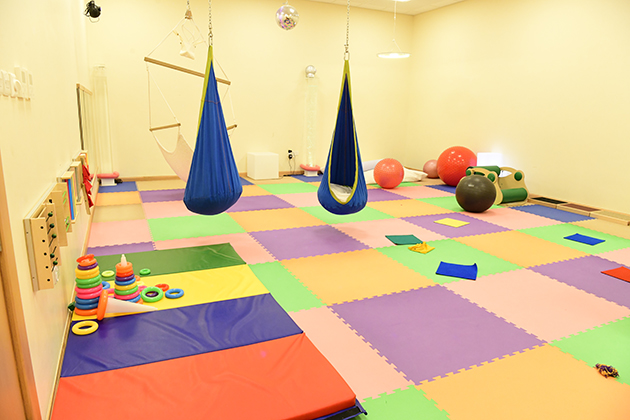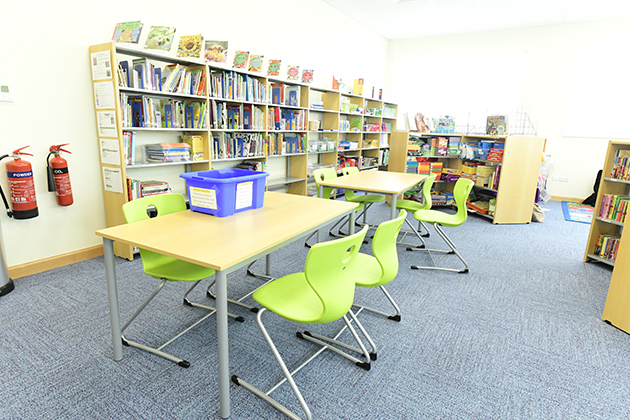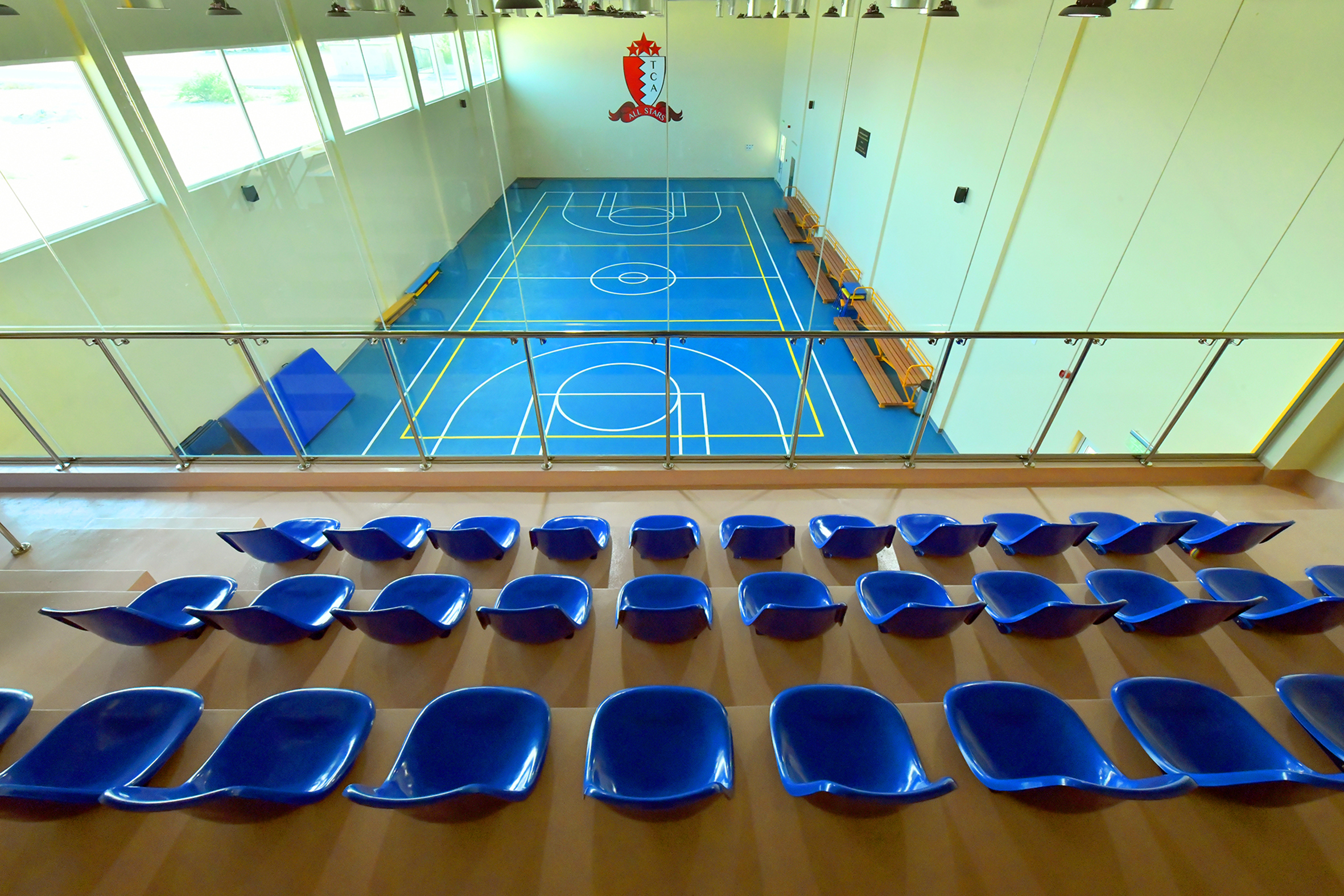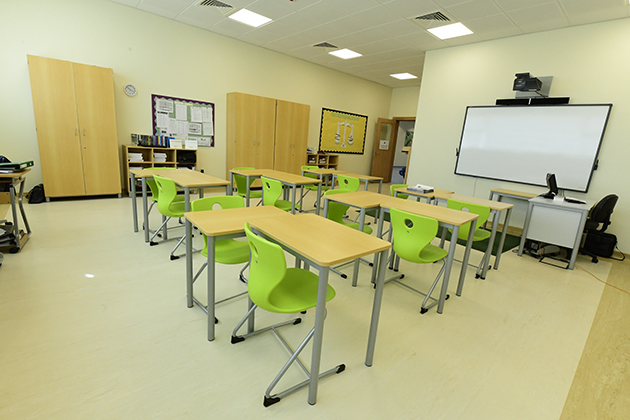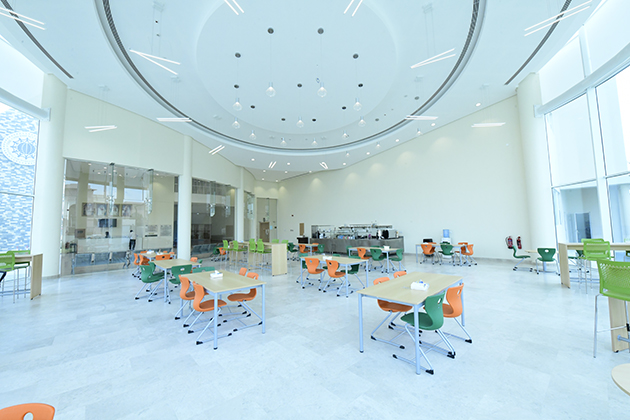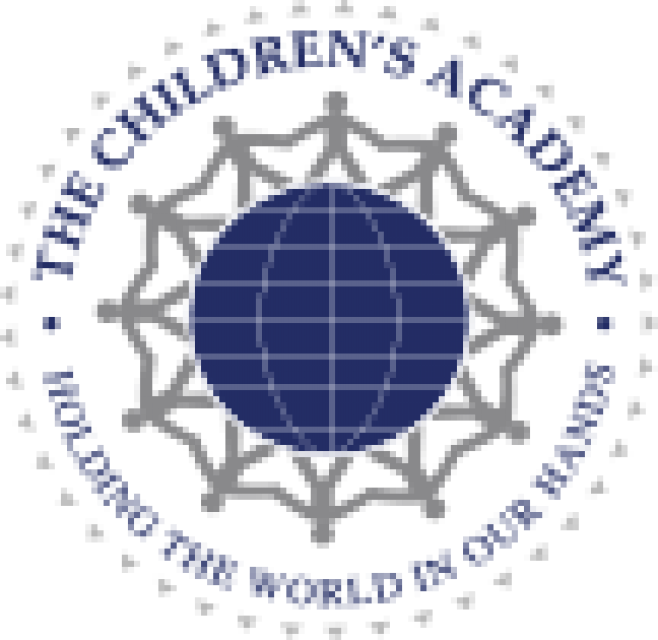
The Children's Academy
Operational Hours
Sunday : 8:00 AM To 10:00 PM || Monday : 8:00 AM To 10:00 PM || Tuesday : 8:00 AM To 10:00 PM || Wednesday : 8:00 AM To 10:00 PM || Thursday : 8:00 AM To 10:00 PM || Friday : 8:00 AM To 10:00 PM || Saturday : 8:00 AM To 10:00 PMDescription
The Children’s Academy is Bahrain’s first ever, independent, dedicated special needs school opened in September 2008. The Children’s Academy is affiliated with the prestigious Alpha Plus Group in London.
Situated in Riffa, the school is everything you would be looking for if you are a parent of a child that has special education needs. So much so, that parents who have previously seen their children struggling to achieve expected levels of attainment in a mainstream education establishment, should be especially pleased about this addition to Bahrain’s educational offering.
The Children’s Academy ensures the children are taught in classes with low teacher-pupil ratios and several teaching assistants in each class, to facilitate one-on-one attention. The children have access to the British National Curriculum, International Primary Curriculum, NCFE, BTEC and GCSEs.
All children have access to a high quality indoor and outdoor learning environments and a broad and balanced curriculum.
The Children’s Academy provides an individualized education within a nurturing learning environment offering high levels of academic and therapeutic support. At the heart of the school’s ethos is the belief that the development of a positive self-image is the key to the development of a child’s full potential. To this end, the school is committed to providing an educational environment in which all children can experience success.
The Children’s Academy is a world where children will also have their own individual Educational Plan and where targets are reviewed regularly enabling parents to understand every stage of the child’s progress.
The Children’s Academy has the luxury of having specialist comprehensive therapy services on site to offer a multi-disciplinary approach to the learning environment. The school offers two Speech and Language Therapists, Physiotherapist, and an Occupational Therapist; in addition, a Behaviour Therapist supports the school.
The Children’s Academy is unique to Bahrain in providing a highly specialized and professional facility that will awaken the child’s spirit.
Curriculum
At The Children’s Academy we offer a balanced, creative and challenging curriculum based on the Early Years Foundation Stage (EYFS) framework and the British National Curriculum for Key Stages One to Four. These frameworks set out what pupils should be taught and it is for schools to modify and organise their curriculum to cater for the specific individual needs of their cohort as well as the local needs of that community.
ENGLISH
The National Curriculum framework aims to develop children’s speaking, listening, reading and writing skills. At The Children’s Academy each child is taught at his or her own individual level, using methods suited to his or her ability. To develop confident readers, we employ the phonics approach. The Ruth Miskin Read Write Inc. (RWI) Programme, is a comprehensive phonics based programme which can be used across Key Stages One, Two and Three. This programme has been adapted and refined by the staff at The Children’s Academy to suit the specific learning styles of our pupils.
MATHEMATICS
In Mathematics a balance is created between activities that develop knowledge, skills and understanding and those that develop the ability to tackle practical problems. Teachers aim to develop pupils’ numeracy and mathematical reasoning in all subjects so that they understand and appreciate the importance of mathematics.
In the early learning phase, key resources used in teaching the fundamentals of this subject include: Numicon, a multi-sensory programme and Dynamo Maths, an award winning intervention programme for Dyscalculia. Guidance for the early teaching of this core subject is taken from the Early Years Foundation Stage Framework.
Throughout the Key Stage One and Two learning phase, the school uses the Pr1me Maths programme, alongside Numicon, Dynamo Maths and Mathletics. To progress the pupils systematically through the National Curriculum, pupils are grouped according to strengths and needs. This grouping allows for personalised learning and the development of both arithmetic fluency and mathematical reasoning.
At Key Stage Three, pupils continue to consolidate their mathematical knowledge though an emphasis on life-skills maths in preparation for the post 14 programme and Key Stage Four.
The balance of the curriculum forms the Creative Curriculum and is made up of a variety of programmes to enrich the learning of our pupils.
THE INTERNATIONAL PRIMARY CURRICULUM (IPC), a thematic cross-curricula teaching structure, is used in international schools in over 90 countries around the world. It has specific learning goals for every subject, as well as for personal learning and international mindedness. Pupils accessing the Foundation and Key Stage One make use of this programme to cover key skills prescribed in the National Curriculum. Pupils at Key Stage two continue to make use of this programme and in so doing cover key subjects such as: science, geography, history, art and ICT.
SCIENCE is taught in thematic units as a separate subject. Again, guidance is taken from the British National Curriculum objectives for Key Stages One to Three.
PERSONAL, SOCIAL AND HEALTH EDUCATION (PSHE) has a fundamental part to play in promoting spiritual, moral, cultural and social development. This is a planned programme of learning which enables pupils to acquire the knowledge, understanding and skills they need to manage their lives. As part of a whole school approach, PSHE empowers children to become healthy and independent learners.
MUSIC forms an integral part of the Key Stages curriculum at The Children’s Academy. Our aim is to encourage involvement, creativity and the development of individual music ability. Opportunities are provided for the acquisition of listening, singing, instruments and simple composition skills.
AFTERNOON CROSS CURRICULAR ACTIVITIES (ACCA) teaches pupils a wide variety of life and vocational skill-based activities such as scouting skills, social skills, and cooking, sewing, sport and leisure activities.
PHYSICAL EDUCATION (PE) provides opportunities for pupils to become physically confident in a way which supports their health and fitness. The school embraces opportunities for pupils to compete in sport and other activities that build character and help to embed values such as fairness and respect. A programme is provided which develops fundamental movement skills, flexibility, strength, technique, control and balance. Pupils play competitive games, modified where appropriate. Our programme includes athletics, badminton, basketball, cricket, football, hockey, tennis, Tball, rounders and handball. The school also provides swimming instruction to teach pupils water safety and to swim competently.
Therapy Services
The Children’s Academy provides a comprehensive therapy service for children and young people with a variety of conditions, including Down’s Syndrome, Autistic Spectrum Disorder, Attention Hyperactivity Disorder (ADHD), Developmental Coordination Disorder, Global Development Delay and Speech and Language Delay or Disorder.
- Speech and Language Therapy
- Occupational Therapy
- Physiotherapy
Admission Policy
The Children’s Academy is a school for children with mild to moderate learning difficulties.
Suitability of children for admission is determined by a series of Educational Psychological Assessments. This may involve informal assessment sessions with the Head, Deputy Head, therapists and time spent in a class. A Speech and Language Therapist, Physiotherapist, Occupational and Behaviour Therapist report may also be required.
Admission of pupils require that they would benefit from the education and resources on offer at The Children’s Academy and that their enrolment would not adversely affect the education of other pupils.
The primary purpose of the school is to meet the needs of pupils with specific mild to moderate learning difficulties. Pupils whose learning difficulties do not fit into this criteria are not eligible for admission as they would benefit from a less specialised setting or from a setting with a different specialism.
Pupils with disabilities such as, dyslexia, dyspraxia, social and communication difficulties, ADD/ADHD are considered for admission if they meet the criteria.
Admission Procedure
Statement of intent
It is our intention to make our school accessible to all pupils and families without prejudice to race, religion, nationality, disability or social background.
Aim
We aim to ensure that the school’s admissions process is open and fair.
Methods
- Parents who wish to apply for admission are required to complete an application form, along with a non-refundable BD50 registration fee.
- Parents must also provide recent reports and assessments to the school together with the application form.
- The information provided (application form and reports) will be assessed by the school to make a determination as to whether the child may be a suitable candidate to take forward in the admissions process.
- If the school considers the child a possible candidate an appointment is made with the school’s preferred Educational Psychologist to undertake further assessment of suitability for admission. (This assessment is at the parents cost).
- Fee and payment schedules and terms and conditions are communicated clearly to parents.
- If the Educational Psychologist assessment report is favourable as a fit to the school, the child will be invited to spend one or two days at school. He/she will be observed in the classroom by the teacher and will also be assessed by the therapists. After spending time in the classroom a meeting will be held with the head and staff involved to discuss their observations and thoughts on suitability of the child within the school setting.
- In some cases further assessment may be required at the cost to the parents.
- The final decision regarding admission to the school will be based upon the accumulation of all of the above criteria. The child's age is taken into account, as is his or her previous schooling, English language proficiency and cognitive ability/learning potential. All admissions to The Children’s Academy are made on the basis of the school’s ability to meet each child’s needs.
- If offered a place a deposit of BD500 is required to accept the place. The terms and conditions in the application form advise parents that the deposit is refundable subject to a full term’s notice of withdrawal in writing. The deposit will not be returned in the event of the child leaving without adhering to the above notice given.
School Fee
THE CHILDREN’S ACADEMY FEES – 2019/2020
(from January 2020)
All parents seeking to enrol their child are required to complete an application form and pay a non-refundable Registration Fee of 50 BD.
All parents offered a place for their child will be required to pay:
1. A deposit of BD 500.
This is refundable against the last term’s fees provided a full term’s written notice of the child’s withdrawal from the school is received. If the place is cancelled by the parent prior to the agreed start date, the school will retain the deposit.
2. There are three different structures of school fees:
- Children accessing the early years and beginning of Key Stage 1 have Annual School Fees of BD 11,406. These are payable each term (total of three terms a year). Each term’s payment is BD 3802 and is due for payment on or before the first day of each term.
- Children accessing Key Stage 1, 2 and 3 have Annual School Fees of BD 11,895. These are payable each term (total of three terms a year). Each term’s payment is BD 3965 and is due for payment on or before the first day of each term.
- Children accessing KS4 have Annual School Fees of BD 12,504. These are payable each term (total of three terms a year). Each Term’s payment is BD 4,168 and is due for payment on or before the first day of each term
The school fees include:
- all tuition costs in a class of not more than 12 pupils
- classroom access to the school’s therapy provision as identified in the child’s IEP (Individual Education Plan).
- books and other learning resources;
- access to all specialised educational support equipment;
- extra individual therapy at a discounted rate if appropriate (after school hours).
3. An Annual Development Levy of BD 518 to be used for the maintenance and improvement of the learning environment. This is payable together with the term fees for Autumn Term or the first term of joining if you do not commence in the Autumn Term ( September).
Notes:
A surcharge of 8% will be levied if fees are not paid within seven days of the due date indicated on invoicing.
School Hours
- The school day begins at 8.00 am with registration and time for teachers to deal with pastoral matters and pupils to complete routine daily tasks.
- Registration is followed by POTs. This is a physical wakeup for all children and the sessions are led by our Physiotherapist & Occupational Therapist.
- Lessons begin after POTs and continue until approximately 10.30am when children have a mid-morning break and snack.
- Lessons resume at 11.00 am and continue until 1.00 pm, when the school day ends with registration.
- On a Monday, Tuesday & Wednesday, children in the upper school access the ACCA curriculum. They remain at school until 2.30pm on these days.
- Once a week the whole school gathers together when we hold an assembly to celebrate the efforts and achievements of the children at the academy – we call this our Weekly Celebration

Please Login to add your review.



